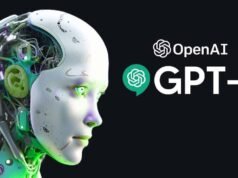The anticipation for OpenAI’s GPT-5 has reached a fever pitch as the AI community and industry leaders brace for its impending launch. With the success of its predecessors. This article explores the potential impact of GPT-5 on the AI landscape, the innovations it promises, and the pressure it places on competitors.
The Evolution of GPT to OpenAI GPT-5
From GPT-1 to GPT-4: A Brief Overview
OpenAI’s Generative Pre-trained Transformer (GPT) series has revolutionized the field of natural language processing (NLP). Starting with GPT-1, which had 117 million parameters, each successive iteration has seen exponential growth in capabilities and complexity. GPT-2, with 1.5 billion parameters, demonstrated substantial improvements in text generation. However, it was GPT-3, with 175 billion parameters, that truly captured global attention by showcasing unprecedented levels of fluency and coherence in generated text.

GPT-4 continued this trajectory, integrating more sophisticated algorithms and larger datasets to improve contextual understanding and reduce biases. Its applications spanned across various domains. From customer service to creative writing to pushing the boundaries of what was thought possible with AI.
Key Innovations in GPT-4
GPT-4 introduced several critical advancements:
- Enhanced Fine-Tuning: Fine-tuning capabilities allowed for more specialized applications, making GPT-4 adaptable across industries.
- Reduced Bias: Efforts to mitigate biases in AI responses were significantly advanced. By addressing one of the major criticisms of earlier models.
- Multimodal Abilities: GPT-4 could process not just text but also images and other data types, expanding its utility in fields like healthcare and autonomous driving.
What to Expect from OpenAI GPT-5
Anticipated Technological Advancements
With the imminent release of GPT-5, expectations are sky-high. Here are some of the anticipated advancements:
Increased Parameter Count
Potentially in the range of several hundred billion. This increase will enhance the model’s ability to understand and generate more nuanced and contextually accurate text.

Improved Efficiency
One of the critical areas of focus for GPT-5 is likely to be efficiency. Reducing computational costs while maintaining or improving performance will make the model more accessible for a wider range of applications.
Enhanced Multimodal Capabilities
Building on GPT-4’s multimodal abilities. GPT-5 is expected to further integrate and improve its processing of various data types. This will enable more sophisticated applications in industries such as healthcare, finance, and autonomous systems.
Advanced Fine-Tuning Techniques
GPT-5 is anticipated to offer more advanced fine-tuning techniques. Allowing users to customize the model for highly specific tasks with greater ease and accuracy.
Ethical and Safety Improvements
OpenAI has consistently emphasized the importance of ethical AI development. GPT-5 is expected to incorporate advanced safety measures to prevent misuse and reduce the risk of generating harmful content. This includes more robust systems for detecting and mitigating biases and ensuring compliance with ethical guidelines.
Impact on the AI Industry
OpenAI GPT-5: Raising the Bar for Competitors
The launch of GPT-5 is set to raise the bar for a advance AI development. By putting significant pressure on competitors. Companies like Google DeepMind, Microsoft, and IBM will need to accelerate their research and development efforts to keep pace with OpenAI’s advancements.

Competitive Responses
- Google DeepMind: Known for its groundbreaking work in AI, Google DeepMind is likely to respond with advancements in its own models, such as the Transformer and Alpha series.
- Microsoft: As a key partner of OpenAI, Microsoft will leverage GPT-5’s capabilities in its Azure cloud platform, while also pushing its own AI initiatives forward.
- IBM: With its focus on enterprise AI solutions, IBM will need to innovate rapidly to maintain its competitive edge in the wake of GPT-5’s release.
Expanding AI Applications
GPT-5’s advanced capabilities will open new avenues for AI applications across various sectors. Industries such as healthcare, finance, education, and entertainment will see significant transformations as they integrate more sophisticated AI solutions.
Healthcare
In healthcare, GPT-5’s enhanced data processing and contextual understanding will improve diagnostic accuracy, personalized treatment plans, and patient care. Its multimodal capabilities will enable better integration of medical imaging and patient records.
Finance
The finance sector will benefit from GPT-5’s ability to analyze vast amounts of data and generate insights. Applications include fraud detection, risk management, and personalized financial advice.
Education
In education, GPT-5 can create more interactive and personalized learning experiences. It will enhance automated grading systems, provide real-time feedback, and support adaptive learning technologies.
Entertainment
The entertainment industry will leverage GPT-5 for content creation, including scriptwriting, music composition, and game development. Its ability to generate realistic and engaging content will revolutionize how we consume and create media.
Challenges and Considerations
Ethical Implications
While the advancements in GPT-5 are promising, they also raise significant ethical considerations. The technology is used responsibly and does not perpetuate harmful biases or misinformation. OpenAI will need to continue its efforts in transparency and ethical AI practices.

Access and Equity
As AI technology advances, ensuring equitable access remains a challenge. The risks which the benefits of GPT-5 should be concentrated. Strategies to democratize access to advanced AI, including partnerships with educational institutions and non-profits, will be essential.
Regulatory Landscape
The rapid pace of AI development often outstrips regulatory frameworks. Governments and regulatory bodies will need to develop policies that balance innovation with safety and ethical considerations. This includes addressing issues related to data privacy, AI accountability, and the impact on employment.
The Future of OpenAI GPT-5
Long-Term Implications
The launch of GPT-5 represents a significant milestone in the journey towards more advanced and capable AI systems. Its long-term implications include:
- Accelerated Innovation: GPT-5 will serve as a catalyst for further innovation in AI, pushing the boundaries of what is possible.
- Human-AI Collaboration: As AI systems become more sophisticated, the potential for human-AI collaboration will grow, leading to new ways of working and problem-solving.
- Transformative Applications: The capabilities of GPT-5 will enable transformative applications across industries, improving efficiency, productivity, and quality of life.

Preparing for the Future on GPT-5
To prepare for the future with GPT-5, organizations and individuals must focus on:
- Continuous Learning: Staying updated with the latest developments in AI and acquiring new skills will be essential.
- Ethical Considerations: Prioritizing ethical considerations in AI development and deployment will be crucial to ensure positive outcomes.
- Collaboration: Collaboration between industry, academia, and government will be key to addressing the challenges and maximizing the benefits of AI advancements.
Conclusion:
The imminent launch of OpenAI’s GPT-5 marks a pivotal moment in the field of artificial intelligence. With the advanced capabilities and potential applications. The GPT-5 is set to drive significant changes across various sectors. From healthcare and finance to education and entertainment.









